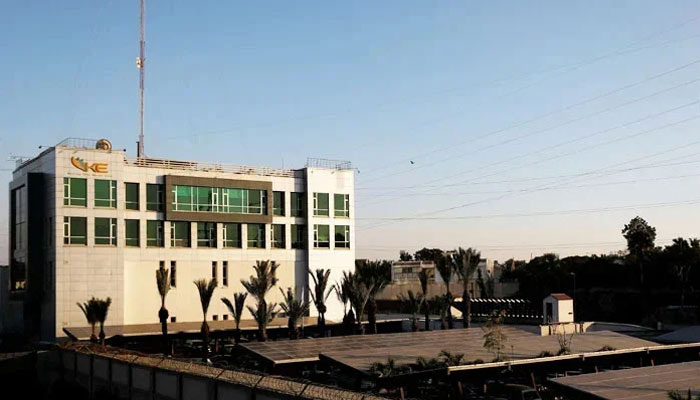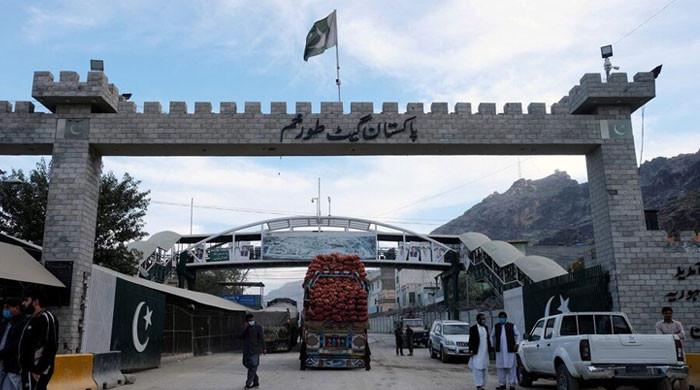K-Electric offers Rs4.98 per unit rebate for November overcharges
Utility provider seeks to refund approximately Rs7.18bn in billing month of Feb 2025 under monthly FCA for Nov
December 28, 2024

- Nepra schedules public hearing on Jan 15, 2025, on KE's petition.
- KE argues adjustment consistent with past decisions on monthly FCA.
- Hearing to see whether requested FCA is justified among other factors.
ISLAMABAD: Karachi’s power supplier, K-Electric, has submitted an application to the National Electric Power Regulatory Authority (Nepra), requesting permission to reimburse its customers Rs4.98 per unit.
The reimbursement is intended to offset the higher electricity tariffs applied during November 2024, The News reported on Saturday.
Under the monthly fuel charges adjustment (FCA) for November, the company wants to refund approximately Rs7.179 billion in the billing month of February 2025.
It is to be noted that earlier, on account of FCA for September 2024, Nepra had asked the utility company to refund Rs0.1758/unit to its clients in the billing month of December 2024. For October's FCA, the company willing to pay back Rs0.27/unit. The regulator had held a public hearing on its petition on December 12, and the decision is awaited.
On the latest petition, Nepra has scheduled a public hearing on January 15, 2025, to review K-Electric's petition. The hearing will address two primary concerns: whether the requested FCA is justified and if the utility adhered to the established merit order when generating electricity from its own power plants and purchasing it from external sources.
If approved by the regulator, the adjustment will apply to all consumer categories except lifeline consumers, domestic consumers using up to 300 units, electric vehicle charging stations, prepaid electricity consumers of all categories, and agriculture consumers. However, the negative adjustment for the monthly fuel charges adjustment (FCA) will also apply to domestic consumers with Time of Use (ToU) meters, regardless of their consumption level.
In its petition, K-Electric argued that the adjustment is consistent with Nepra's previous decisions on provisional monthly fuel cost adjustments for the period from July 2023 to June 2024. The company highlighted that provisional FCAs were authorised based on parameters outlined in the Multi-Year Tariff (MYT) for 2017-2023, and adjustments may be implemented once the MYT for 2024-2030 is finalised.
The FCA for November 2024 has been calculated using the interim tariff established in March 2023 as the reference point. K-Electric's submission included detailed calculations and supporting documentation for Nepra's evaluation and approval.
However, the utility provider has been under criticism regarding its reliance on ageing gas-guzzling power plants, which contribute to rising costs borne by consumers or subsidised by the government. Besides, Nepra is also being criticised for overlooking the company's inefficiencies, particularly the its failure to modernise its outdated, four-decade-old plants.
These facilities produce costly electricity, leading to higher tariffs for consumers and significant government subsidies aimed at maintaining uniform pricing.
Moreover, stakeholders have pointed out that no assessments have been made regarding the heat rate of K-Electric's plants, which are generating expensive power.
Adding to the controversy, the federal government has opposed K-Electric's proposed tariff hike for 2024-2030, branding it inflated and unrealistic.
The government has recommended slashing the tariff from Rs44.69 to Rs34.87 per unit by addressing inefficiencies and adopting cost-saving measures.
These include tying the return on equity to the Pakistani rupee, sourcing more power from the national grid, and implementing a "take-and-pay" model for generation contracts.
Officials estimate that these reforms could save billions annually, alleviating the financial strain on consumers while improving operational transparency.
K-Electric's CEO Moonis Alvi has defended the company's stance, highlighting the need for a cost-plus tariff structure to ensure financial viability.
peaking on Geo News' programme 'Aaj Shahzeb Khanzada Kay Sath', Alvi acknowledged room for adjustments, including recalibrating financial assumptions like interest rates. The utility's base tariff petition is under Nepra's review, with stakeholders calling for a solution that balances consumer affordability and investor confidence.











